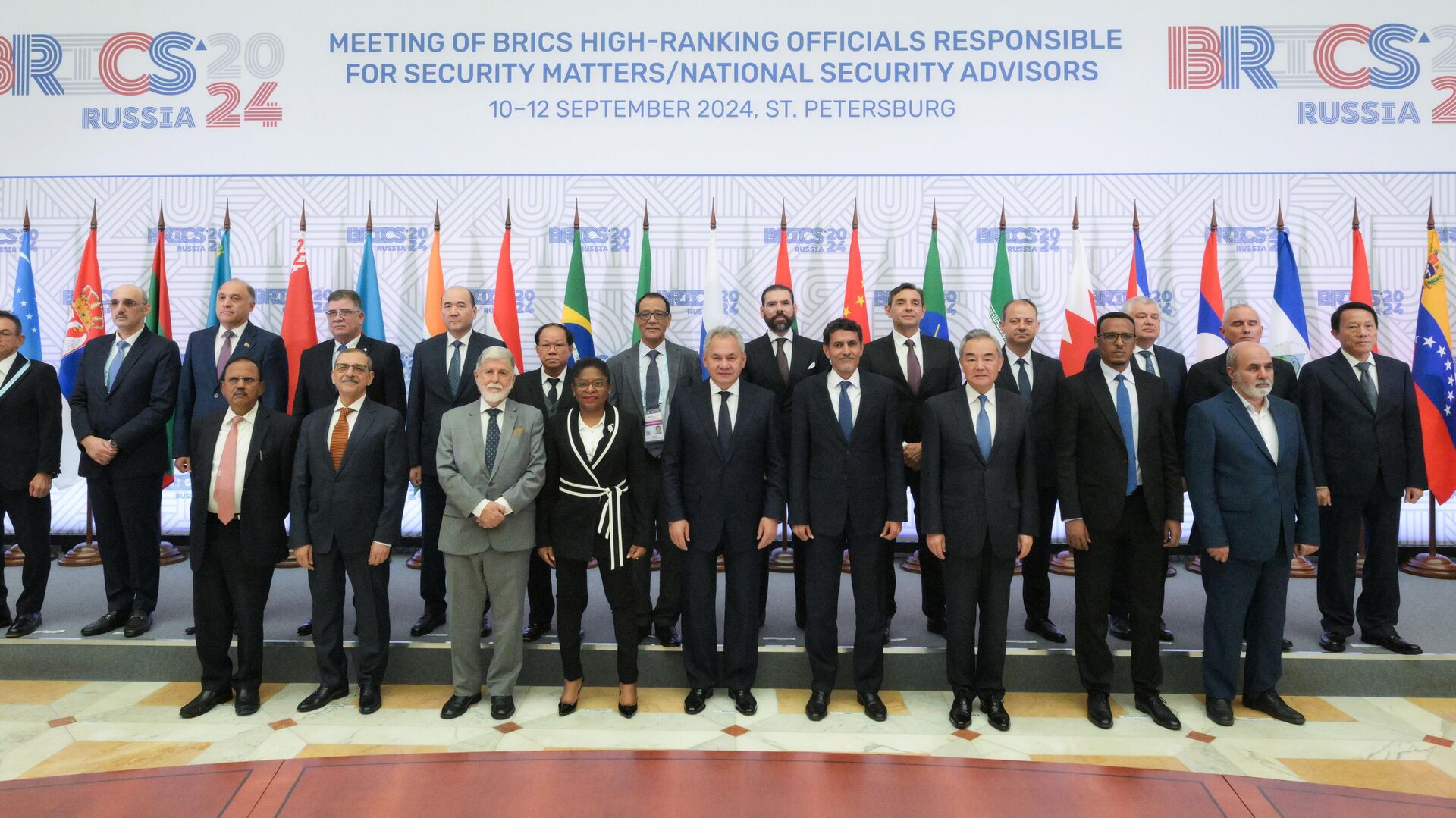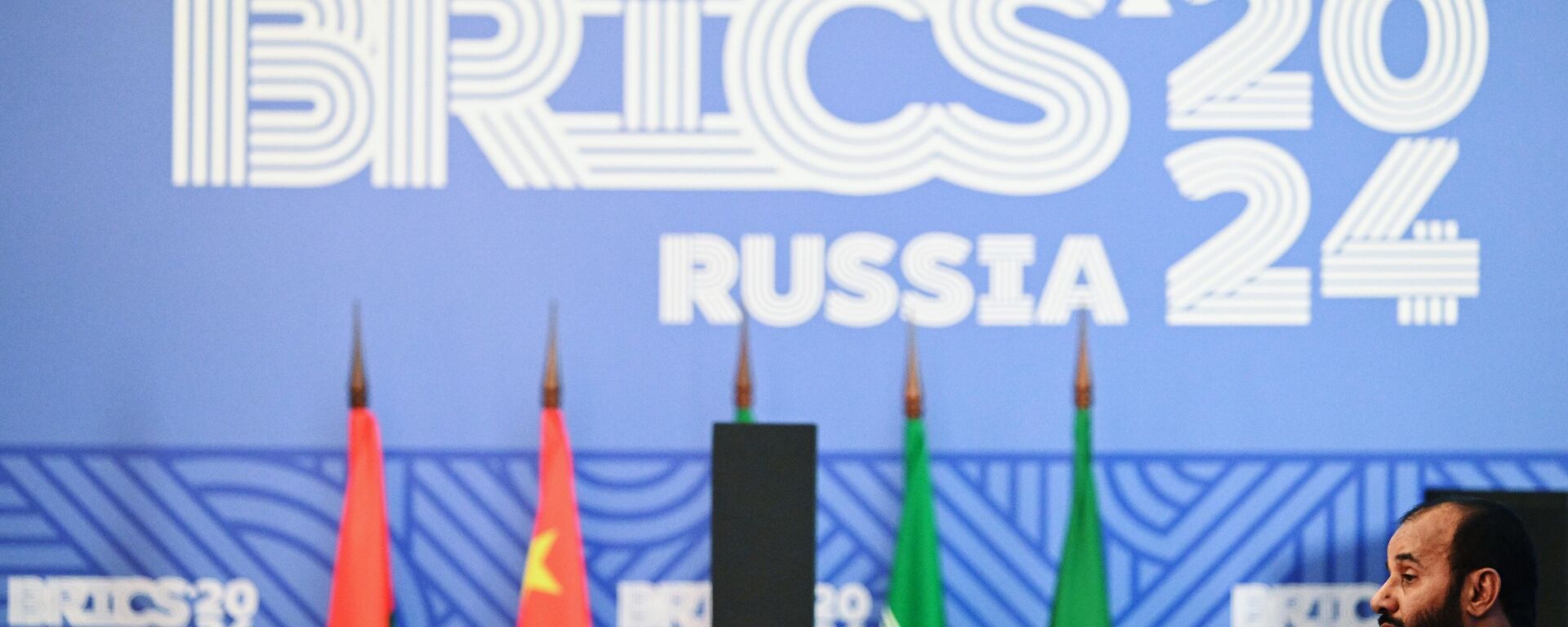https://en.sputniknews.africa/20240920/global-south-must-resist-western-tech-giants-information-order-says-indian-official-1068350031.html
Global South Must Resist Western Tech Giants' 'Information Order,' Says Indian Official
Global South Must Resist Western Tech Giants' 'Information Order,' Says Indian Official
Sputnik Africa
On September 17, Meta* blocked the accounts of Russian media groups RT and Rossiya Segodnya across its platforms, once again raising concerns in Global South... 20.09.2024, Sputnik Africa
2024-09-20T12:42+0200
2024-09-20T12:42+0200
2024-09-20T13:19+0200
russia
india
west
sputnik
brics
global south
international
technology
development
politics
https://cdn1.img.sputniknews.africa/img/07e8/09/14/1068350233_194:0:3835:2048_1920x0_80_0_0_2e0445dc387ebce24912239c22b6c8a8.jpg
Western-controlled Big Tech giants seek to establish an "information order" aligned with their political interests, and that is problematic, said Kanchan Gupta, a Senior Advisor at India's Information and Broadcasting Ministry speaking to Sputnik. He stressed that countries in the Global South must actively resist this agenda.Over the past few years, a new trend has emerged that essentially weaponizes US tech giants to push the agenda of the Transatlantic Alliance, he said.The pattern was observed during the early days of the Ukraine conflict, where Silicon Valley was weaponized to de-platform Russia and pro-Russian voices, the pundit highlighted.The Indian official emphasized that the world cannot accept a so-called world order that excludes the Global South. Therefore, BRICS nations must take a proactive role in establishing a 'new information order.'Gupta suggested three important parameters in forging a global consensus for a new information order: transnational politics, technology, and geostrategy.Moreover, Gupta expressed concern over the West's increasing efforts to impose its narratives while marginalizing non-Western perspectives in global discourse. He argued that this practice would effectively violate the fundamental rights of individuals regarding the type of information they wish to consume.He pointed to the similarities between the West's efforts to craft an information order in the post-World War II era and the current geopolitical situation, wherein more developing nations were striving for multipolarity.Non-Western Platforms Across BRICS Gaining Strength: RUSSOFT PresidentOpportunities for non-Western platforms emerging across the BRICS spectrum are getting stronger, Valentin Makarov, President of the Russian Software Developers Association (RUSSOFT), told Sputnik.He said that the "technical aspects" of an intra-BRICS collaboration in this domain were already feasible and will be implemented when there is an economic need for the mechanism to support the new multipolar order.*banned in Russia for extremist activities
https://en.sputniknews.africa/20240920/russias-example-proves-brics-states-not-dependent-on-western-powers-brics-chamber-of-commerce-1068347822.html
russia
india
west
united states (us)
Sputnik Africa
feedback@sputniknews.com
+74956456601
MIA „Rossiya Segodnya“
2024
News
en_EN
Sputnik Africa
feedback@sputniknews.com
+74956456601
MIA „Rossiya Segodnya“
Sputnik Africa
feedback@sputniknews.com
+74956456601
MIA „Rossiya Segodnya“
russia, india, west, sputnik, brics, global south, international, technology, development, politics, ukraine crisis, geopolitics, information, information and communication technology, united states (us), russia today (rt)
russia, india, west, sputnik, brics, global south, international, technology, development, politics, ukraine crisis, geopolitics, information, information and communication technology, united states (us), russia today (rt)
Global South Must Resist Western Tech Giants' 'Information Order,' Says Indian Official
12:42 20.09.2024 (Updated: 13:19 20.09.2024) On September 17, Meta* blocked the accounts of Russian media groups RT and Rossiya Segodnya across its platforms, once again raising concerns in Global South nations about the US-controlled Big Tech platforms agenda.
Western-controlled
Big Tech giants seek to establish an "information order" aligned with their political interests, and that is problematic, said Kanchan Gupta, a Senior Advisor at India's Information and Broadcasting Ministry speaking to
Sputnik. He stressed that countries in the
Global South must actively resist this agenda.
"I believe that information order has to be broad-based, participatory and accommodative of all shades of information, and not only that information which would be [to the] political advantage of the West. Let the people decide," Gupta emphasized.
Over the past few years, a new trend has emerged that essentially weaponizes US tech giants to push the agenda of the Transatlantic Alliance, he said.
The pattern was observed during the early days of the Ukraine conflict, where Silicon Valley was weaponized to de-platform Russia and pro-Russian voices, the pundit highlighted.
The Indian official emphasized that the world cannot accept a so-called world order that excludes the Global South. Therefore, BRICS nations must take a proactive role in establishing a 'new information order.'
Gupta suggested three important parameters in forging a global consensus for a new information order: transnational politics, technology, and geostrategy.
"We need Big Tech companies spread across the globe, which is not subject to the whims and fancies of any one government," he maintained. "Because information shapes the global view. So, an information order that doesn't include non-Western countries would be meaningless. It would be just another weapon in the armory of the West," the advisor argued.
Moreover, Gupta expressed concern over the
West's increasing efforts to impose its narratives while marginalizing non-Western perspectives in global discourse. He argued that this practice would effectively violate the fundamental rights of individuals regarding the type of information they wish to consume.
He pointed to the similarities between the West's efforts to craft an information order in the post-World War II era and the current geopolitical situation, wherein more developing nations were striving for multipolarity.
"At the end of World War II, it was the Anglo-American alliance which forged a Global Information Order mechanized to the extent that it lasted well after the end of the Cold War. At that time, Big Tech was usually associated with radio and television. This information order served as a weapon in the hands of the West. That situation doesn't exist anymore. Today, the connotations of Big Tech have changed and come to encompass how we view Big Tech now," he explained.
Non-Western Platforms Across BRICS Gaining Strength: RUSSOFT President
Opportunities for non-Western platforms emerging across the
BRICS spectrum are getting stronger,
Valentin Makarov, President of the Russian Software Developers Association (RUSSOFT), told
Sputnik."I believe that within the next year or two, we will see the emergence of such platforms across various BRICS countries. Not only Russia, but also India, China and Brazil have the technological capability to create such networks. Early examples of collaboration, such as with India, demonstrate that we have found a mutual model of cooperation which benefits both sides, where each party maintains its independence while collectively fostering the independence of BRICS countries," Makarov highlighted.
He said that the "technical aspects" of an intra-BRICS collaboration in this domain were already feasible and will be implemented when there is an economic need for the mechanism to support the new multipolar order.
"Once trust is established and the need for such a tool arises to accelerate social, economic, industrial, and technological communication between countries, there won’t be any technical barriers," Makarov concluded.
*banned in Russia for extremist activities


